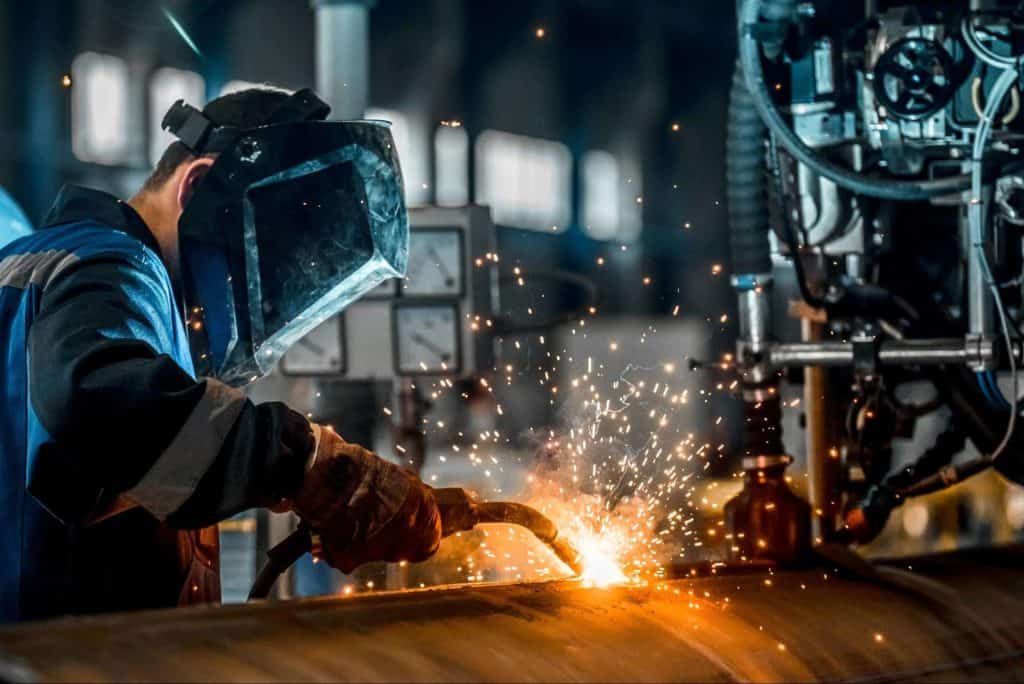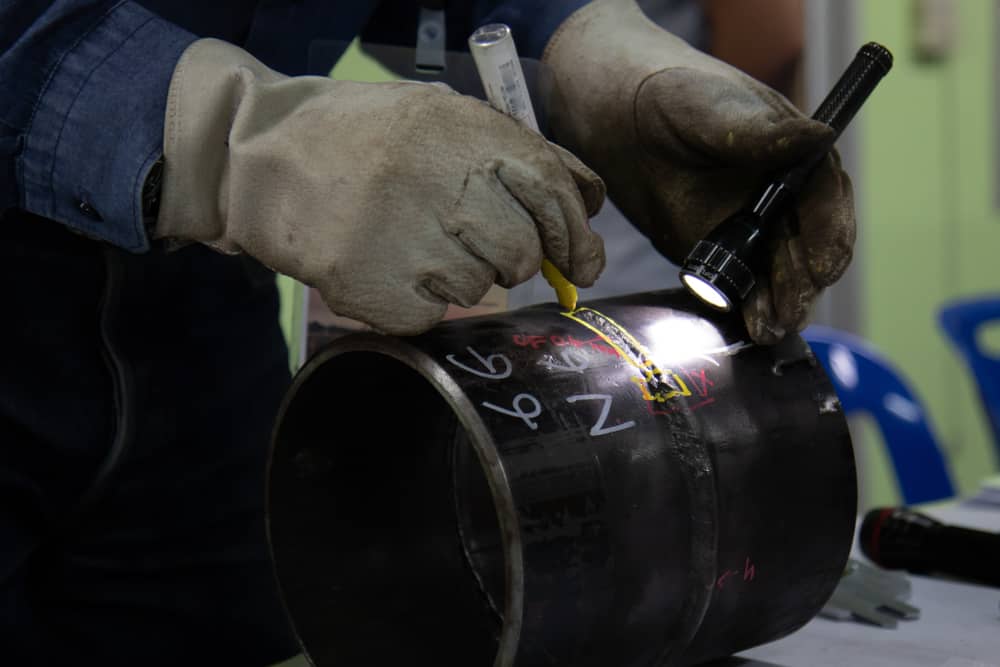The Value of Thorough Welding Assessment in Industrial Applications
In the realm of commercial applications, the importance of meticulous welding assessment can not be overstated. It plays an essential duty in making certain the architectural stability and long life of bonded parts. Advanced non-destructive testing strategies enable the very early discovery of prospective issues, such as fractures and incomplete fusion, which, if left unattended, can result in tragic failures. Adherence to stringent market standards not just assures quality however also builds client confidence. As we check out the multifaceted benefits of attentive welding evaluations, one need to take into consideration the more comprehensive ramifications on security, reliability, and cost-effectiveness in industrial operations.
Enhancing Structural Integrity
When it comes to welding examination in industrial applications, enhancing architectural integrity is paramount. The key objective of welding assessment is to guarantee that the welds are qualified of bearing the expected stress and anxieties and lots they will run into in solution.
The significance of preserving structural stability in bonded frameworks can not be overemphasized. Badly implemented welds can bring about devastating failures, causing costly fixings, downtime, and even endangerment of human lives. Inspectors play a vital function in the lifecycle of industrial parts, offering assurance that the welding procedure provides the preferred strength and resilience.
Furthermore, advanced technologies, such as phased selection ultrasonic testing and electronic radiography, offer boosted abilities in spotting possible weak points, permitting restorative actions prior to issues escalate. By prioritizing the honesty of welds via meticulous assessment, sectors can guarantee functional effectiveness and expand the durability of their facilities.
Recognizing Welding Flaws
Determining welding issues is a crucial facet of ensuring the safety and security and dependability of welded frameworks. Usual welding problems consist of porosity, cracks, incomplete fusion, and undercutting.

Skilled inspectors use both aesthetic examination and advanced non-destructive testing (NDT) techniques, such as ultrasonic or radiographic screening, to identify these flaws. The timely recognition and correction of welding defects are imperative to preserve the structural stability and durability of commercial components.
Guaranteeing Compliance Specifications
Conformity with established criteria, such as those provided by the American Welding Society (AWS) and the International Company for Standardization (ISO), makes sure that welds meet minimal security and high quality demands. These criteria encompass a large variety of requirements, consisting of material requirements, welding procedures, and credentials of welders.
Regular audits and assessments are important in verifying conformity. Inspectors must possess a comprehensive understanding of the pertinent standards and be proficient at making use of different non-destructive testing (NDT) techniques to evaluate weld quality. By ensuring that welding methods line up with conformity requirements, companies reduce the risk of non-conformity, which can bring about legal obligations and security threats.
Additionally, keeping compliance not only safeguards architectural integrity yet also enhances a firm's credibility in the industry. Clients and stakeholders are most likely to depend on firms that regularly demonstrate a commitment to top quality and safety via extensive compliance. Therefore, making sure compliance standards is a vital element in the successful application check out this site of welding in commercial applications.
Lowering Upkeep Prices

The application of sophisticated non-destructive testing (NDT) techniques, including ultrasonic, radiographic, and magnetic bit inspections, enhances the capability to spot subsurface imperfections without jeopardizing the structural integrity of components. By employing these techniques, industries can substantially extend the life span of their tools, decreasing downtime and the connected economic burden of maintenance tasks.
Furthermore, a durable welding examination routine supports the optimization of maintenance routines, moving from responsive to predictive maintenance techniques. This positive strategy not just reduces unexpected failures however likewise improves source appropriation, making certain that maintenance efforts are concentrated and reliable. Eventually, the financial investment in extensive welding examination is countered by the significant cost savings realized with decreased upkeep demands, contributing positively to the overall operational effectiveness of commercial ventures.
Improving Precaution
Welding inspection plays a critical role in this context, as it makes sure that all connections and joints satisfy rigorous safety standards. Comprehensive inspections aid recognize defects such as cracks, porosity, or insufficient blend that could jeopardize structural stability.
To enhance safety steps, adopting sophisticated non-destructive testing (NDT) methods is important. Approaches like ultrasonic testing, radiographic screening, and magnetic bit evaluation allow for detailed assessment without damaging the framework. These innovations allow examiners to discover surprise defects early in the building process, helping with prompt rehabilitative activities. Additionally, implementing a durable quality assurance system that consists of routine training for welders and examiners makes certain adherence to developed security criteria.
Last but not least, fostering a culture of security within the organization highlights the significance of extensive welding assessments. Encouraging open communication and cooperation amongst examiners, designers, and welders adds to a common dedication to safety and security excellence. Welding Inspection Madison. In doing so, industries can guard their operations, secure workers, and maintain public trust

Verdict
Thorough welding evaluation is vital in industrial applications, substantially enhancing architectural stability and dependability. By employing innovative non-destructive screening this post methods, possible welding problems such as splits and incomplete blend are identified early, making certain compliance with market requirements and cultivating customer trust. Rigorous inspections bring about lowered maintenance expenses and add to a more secure working setting. Ultimately, the thorough implementation of welding assessments plays an important duty in maintaining functional effectiveness and security in commercial setups.
As we discover the complex benefits of attentive welding inspections, one have to take into consideration the broader ramifications on safety and security, dependability, and cost-effectiveness in industrial procedures.
The main objective of welding evaluation is to make sure that the welds are qualified of bearing the expected stresses and lots they will run into in service. Reliable welding evaluation plays an indispensable function in decreasing these expenses by guaranteeing the honesty and long life of welds, consequently mitigating the risk of premature failures.Extensive welding evaluation is important in industrial applications, dramatically improving structural honesty and reliability. Eventually, the diligent execution of welding inspections plays a critical duty in maintaining functional efficiency and security in commercial settings.